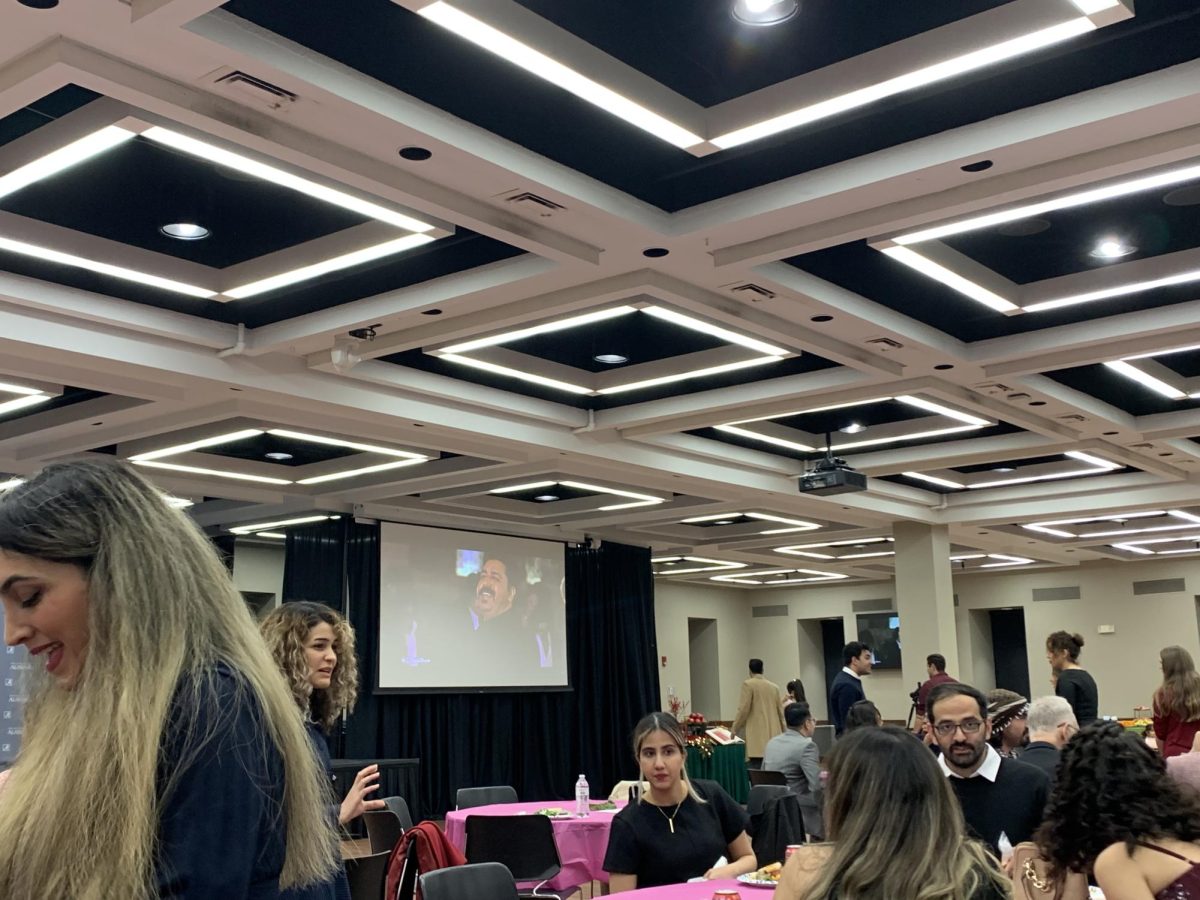The Iranian Students Association hosted its fifth annual celebration of the Iranian holiday Yalda in the Student Center Ballroom on Friday.
The event featured a diverse itinerary, including live music performances, a lecture from a local businessman and traditional dancing.
“Yaldā Night or Chelle Night is an ancient festival in numerous countries like Iran, Afghanistan, Azerbaijan, Tajikistan, Iraqi Kurdistan, Uzbekistan, and Turkmenistan, that is celebrated on the winter solstice,” the ISAUA said in its statement announcing the event.
ISAUA leadership team member Vahid Mousavi said that the holiday is traditionally celebrated by staying up all night with friends and family while eating red fruits, especially pomegranates and watermelons, because red symbolizes the color of dawn and the light of life.
“This is a celebration that reminds us of friendships and love and helps us to keep up our war with the dark and chill nights of the winter,” Mousavi said.
The holiday dates back to the religion of ancient Persia and its Zoroastrian celebrations of the sun god Mithra. Zoroastrianism focuses on an existential battle between good and evil, darkness and light, so the lengthening of days after the winter solstice is seen as the sun beginning to fight back against the night.
The Yalda night celebration began with a buffet of Mediterranean food, scored by music videos from Iranian artists like Hafdang Music. The ISAUA also prepared cups of pomegranate seeds so everyone could participate in the tradition.
After this warm-up, Yalda attendees were treated to a live piano performance from UA music student and ISAUA treasurer Soheil Omiddezyani. Educational videos about the origins of Yalda and a Kahoot game about Iranian history headlined the cultural portion of the event.
Later, a member of the ISAUA took to the stage for one of Yalda’s most important customs, reciting poems from the 14th-century poet Hafez. Omiddezyani returned to play piano covers for a sing-along of classic Persian songs, including “Gole Yakh” by Iranian singer-songwriter Kourosh Yaghmaei. The incredibly popular ballad is named after the wintersweet flower and may be recognizable to American listeners as the sample from the Nas song “Adam and Eve.”
The celebration concluded with dancing, including a competition between Iranian and non-Iranian guests. Mousavi said that the Yalda night festivities were designed to be inclusive, especially to those who had not celebrated or even heard of Yalda before.
Iranian-Americans from Alabama and other states journeyed to participate in the event, including attendees from Huntsville, Auburn and Mississippi. Erfan Ramezanpour, a University of Alabama Ph.D. student in civil engineering, explained that for many Iranian-Americans like himself, celebrating Yalda as a community is incredibly important.
“Many of the Iranians that come here, due to political problems, cannot go home and celebrate this holiday with their families,” Ramezanpour said. “If they could, they would.”
The United States doesn’t have a diplomatic relationship with Iran, and tensions with Iran have mounted due the ongoing war in the Middle East. The U.S. Department of State currently advises that U.S. citizens “not travel to Iran for any reason.”
“A lot of us, even I, cannot go back to Iran,” Ramezanpour said.
The Yalda festivities also attracted non-Iranians wanting to experience the culture of their friends. Mississippi State Ph.D. student Cemre Ayna is Kurdish but still made the journey from MSU in order to celebrate the holiday with his friend.
“Yalda isn’t too popular in Kurdish culture, but there are probably a few regions that celebrate it because we share a Persian heritage,” Ayna said, adding that Persians and Kurds still share certain celebrations, like Nowruz.
The significance of Yalda for his Iranian friend was part of what drew Ayna to the event. Ramezanpour said that gatherings like this are like reunions with other Iranians, whom one might not get to see often.
“For Iranian-Americans, it is one of the most important events in the community,” Ramezanpour said.









